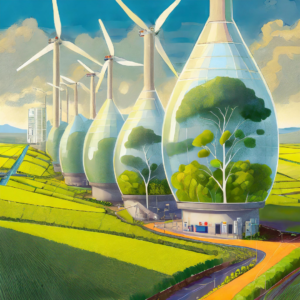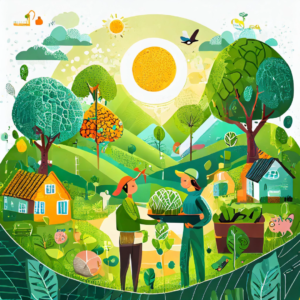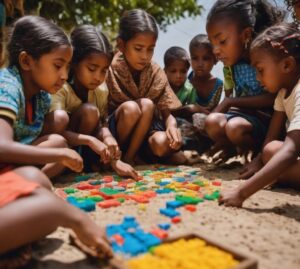Can We Really Achieve the UN’s Sustainable Development Goals – 2
Welcome back to the second installment of our blog series, “Can We Really Achieve the UN’s Sustainable Development Goals?” As we embark on this journey of exploration and inquiry, we delve deeper into the complexities and possibilities surrounding the ambitious agenda set forth by the United Nations. In our inaugural post, we discussed the overarching framework of the Sustainable Development Goals (SDGs) and pondered the feasibility of their realization in our world today.
armed with insights and reflections from our initial discussion, we venture further into the intricate landscape of sustainable development. In this installment, we aim to unravel the multifaceted challenges that lie ahead, while also shedding light on the innovative solutions and promising endeavors that offer hope and inspiration.
Bridging the Gap: Developed vs. Developing Countries
Disparities in Sustainable Development Progress
The journey towards achieving Sustainable Development Goals (SDGs) significantly differs between developed and developing nations. Developed regions such as Europe, North America, Australia, and parts of Asia boast robust resources and infrastructure to spearhead sustainability initiatives. Contrastingly, developing countries, particularly in Africa, Asia, and Latin America, face multifaceted challenges hindering SDG attainment:

1. Poverty’s Grip
In developing nations, widespread poverty diverts attention from sustainability efforts, exacerbating infrastructure deficiencies.
2. Institutional Weakness
Corruption and inadequate governance structures impede policy effectiveness for sustainable development.
3. Financial Constraints
Limited access to capital obstructs large-scale sustainability projects in developing countries.
4. Healthcare and Education Disparities
Insufficient healthcare, education, and gender equality undermine prioritization of sustainability.
5. Vulnerability to Climate Change
Developing nations face heightened risks from climate-related adversities, exacerbating existing challenges.
Global Collaboration for SDGs
To foster global SDG progress, collaboration between developed countries and organizations like the UN is imperative. Strategies include:
- Enhanced financial assistance
- Technology sharing
- Capacity-building initiatives in developing nations
The journey ahead is arduous but surmountable through collective effort.
Empowering Individuals for Change
While governments and international bodies drive SDG agendas, individual actions wield substantial influence. Individuals can contribute through:
- Sustainable consumption habits
- Volunteering with SDG-aligned organizations
- Ethical investment decisions
- Reducing carbon footprint
- Advocating for fair trade and ethical practices

Grassroots Advocacy and Policy Influence
Individuals can further SDG agendas by:
- Voting for sustainable-minded political candidates
- Participating in grassroots movements and campaigns
- Leveraging social media for awareness
- Engaging in public protests and activism
- Spearheading local initiatives
Impact of COVID-19
The COVID-19 pandemic has dealt a severe blow to SDG progress globally, exacerbating poverty, hunger, and educational disparities. However, the recovery phase presents an opportunity to integrate sustainability and equity into recovery plans.

Balancing Optimism and Realism
While progress has been made, achieving all SDGs by 2030 remains uncertain. Challenges include:
- Lack of urgent action
- Insufficient financing
- Weak institutional capacity
- Conflict and insecurity
Addressing these hurdles demands unwavering commitment and collaboration across borders and sectors.
In essence, while the road to SDG achievement is fraught with challenges, concerted efforts and collective action offer hope for a sustainable future.
To read part 1 – click here





Thanks for sharing. I read many of your blog posts, cool, your blog is very good.